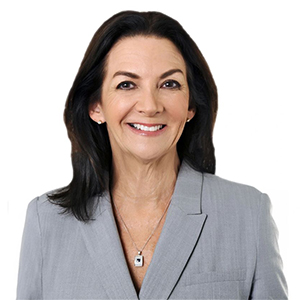
By Jan Schau
The massacre of October 7, 2023 in Israel and the war in Gaza that followed has had a profound effect on Jews around the world.
I am proud to have participated in a series of facilitated dialogues through Ikar, a progressive Jewish congregation in Los Angeles, designed to engage in a series of heartfelt but often divergent viewpoints on how these events have affected us. The Ikar leadership brought in trainers from “Resetting the Table”, and invited about 40 members to undertake training in a formalized facilitated dialogue.
The facilitators were Psychologists, Social Workers, Community Activists and Rabbis. There were only two of us that were/are professional commercial mediators. The program was designed to engage members of the community in facilitated conversations about these strong and raw feelings, but without the objective of resolving any conflict either between members or politically. It drew upon a different skill set, but with the same principles we engage in commercial mediation. I found it fascinating.
Throughout the Spring and Summer of 2025, Ikar successfully convened about 50 “Dinner and Dialogue” gatherings, with about 8 participants, a host and a facilitator at each one. All in, that means 500 participants (and this was only Round 1). Surveys that followed showed that the participants felt resoundingly gratified that their feelings were heard and acknowledged and were eager to repeat or replicate the dialogue in the future.
Here is how it worked: We began by explaining the roles and the goals for the conversation. We set ground rules, similar to those set in every mediation: confidentiality, respect, no interruptions, no bad language or shouting or accusations, etc. Then we offered each participant a timed (2 minute) “opening statement” based on a specific prompt.
At the outset, we set an agenda and agreed that the goal was not to convince anyone of anything, but rather to open hearts and minds with a view towards gaining a deeper understanding of one another’s perspectives. We lifted up and named shared values. We modeled respectful dialogue. We did not attempt to build consensus, but rather to deepen our understanding of divergent views.
Participants were encouraged to ask questions of one another — not to challenge, but to deepen the understanding of the initial statements. The facilitator then summarized the major themes that had emerged and invited an open discussion. This, of course, included the facilitator’s acknowledging the feelings expressed, probing deeper, summarizing and generally observing and reflecting back to the group.
Throughout the conversation, we engaged what are familiar techniques to IAM members: reframing, summarizing, reflecting back to the participants. It was all conducted during the course of a meal and in “joint session” at someone’s dinner table.
At the conclusion, the facilitator invited the participants to reflect upon their own experiences in participating in the dialogue. In my own dialogue, the take-aways noted that this series of events will likely reverberate for a generation. For some, the events and aftermath triggered a heightened sense of Jewish identity. Others felt conflicted between the messages of their childhood in support of Israel and the current war in Gaza. Many expressed feeling a threat to personal safety both about expressing their own political views and living their life as an American Jew, both here and abroad.
In the end, the participants (and their facilitator) greatly appreciated the opportunity to engage in this courageous, yet safe conversation — where people could openly express their points of view and begin to hold a range of competing ideas at once.
For me as facilitator, participation in this series of dialogues truly stretched my skill range. It was very different for me to focus on surfacing the conflict, but not on resolving it. And yet, I, too, am eager to engage in Round 2 of these dialogues: to dig deeper, stretch further, and thoughtfully examine what other issues might be subject to similar dialogue in ways that could lead to a better understanding of one another’s perspective and a reflective, respectful dialogue of the hard issues of our time.
